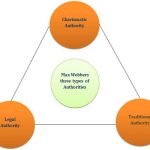
• Many of the people who started sociology thought that it would be possible to make a science of society based on the same rules and methods as chemistry and biology. This point of view is called positivity.
• Auguste Comte (1798–1857), who is known as one of the founders of sociology and is credited with coming up with the word “sociology,” thought that the methods and ideas of the natural sciences could be used to make a “positive science of society.”
• He thought that this would show that the way societies change follows “invariable laws.” It would show that the way people act is based on the same laws of cause and effect as the way things act, which is what the natural sciences are all about.
The philosophical way of thinking is based on the following:
1. Just like you can measure how things behave, you can also measure how people behave. Just as weight, temperature, and pressure can be used to measure how things behave, so can methods of “objective measurement” be made for how people act. For action to make sense, you have to be able to measure it. For instance, if you want to explain how a certain chemical reacts to heat, you need to give accurate measurements of temperature, weight, etc.
2. With the help of these measurements, it will be possible to correctly watch how things behave and figure out what causes what. This could be written as A+B=C, where A is the amount of matter, B is the amount of heat, and C is the amount of gas. Once it has been shown that a certain thing always does the same thing under the same conditions, a theory can be made to explain it.
3. From a positivist point of view, these tools and assumptions can be used to explain how people act. Cause-and-effect claims can be made from observations of behaviour based on objective measurements. Then, theories can be made to understand the behaviour that has been seen.
Sociology’s positivist method puts a lot of weight on behaviour that can be seen for itself. It says that things like meanings, feelings, and goals that can’t be seen directly aren’t very important and can be misleading. For example, if most adults in a society get married and have kids, this is something that can be seen and measured. They are reliable facts because of this. But it’s hard to tell what people in a society think about marriage and having children, or what their reasons are for doing these things. Even if they could be measured correctly, they might take attention away from the real reason why people act the way they do. One person might think he got married because he was lonely, another because he was in love, a third because he thought it was the “thing to do,” and a fourth because he wanted to have children. Using this kind of data to explain something means that people know why people get married. This can make it hard to see what’s really going on with them.
Positivists put a lot of weight on “facts” that can be seen. This is because they think that human behaviour can be explained in a way similar to how matter behaves. For the clear reason that they aren’t there, natural scientists don’t look into what things mean and why they exist. Atoms and chemicals don’t act based on what they mean; they just respond to what goes on around them. So, if you apply heat, which is an outside force, to matter, it will respond. The job of a natural scientist is to watch, measure, and then describe that reaction. The realist view of how people act in groups uses the same kind of reasoning. Men respond to things in the outside world, and this response can be used to explain how they act. For example, men and women get married and have children because that’s what society wants. Society needs this kind of behaviour to stay alive, and its people just do what is needed. The reasons and meanings they give for this action are mostly not important.
Sociology takes a positivist method to the study of systems theory. Once behaviour is seen as a reaction to something outside of the person, like economic forces or the needs of the social system, the methods and ideas of the natural sciences seem to fit the study of people.
People often think of Marxism as a positivist way of looking at the world because it sees human behaviour as a response to the economic framework.
People have looked at functionalism in the same way. People’s actions can be seen as a response to the needs of the social order for it to work.
Up until the middle of the nineteenth century, most studies of society and social events were based on speculation, logic, theological thought, and rational analysis. August Comte, a French scholar, said that these ways of studying social life were not good enough. In the area of social research, he came up with the idea of the positive method in 1848. He said that you shouldn’t study social things by using logic, theology, or metaphysical ideas. Instead, you should look at society and how people interact with each other. He talked about poverty, for example, in terms of the social forces that rule society. He said that this way of doing research was scientific. Comte thought that the scientific method, which he called positivism, was the best way to study society. This new way of doing things didn’t believe in speculation or philosophy. Instead, it focused on gathering real-world facts and became a positivist method, using the same methods as the natural sciences. By the 1930s, positivism was popular in the United States, and other countries slowly caught on.
Critique to Positivism:
Positivism has been criticised from both inside and outside the positivist movement. In the early 20th century, a branch of positivism called “logical positivism” was created. This branch said that science is both logical and based on observable facts, and that the truth of any claim can be tested through direct experience.Schools of thought like symbolic interactionism, phenomenology, ethnomethodology, etc., grew up outside of positivism. These schools questioned the scientific way of thinking and how it saw the world.But scholars began to accept Positivism more in the 1950s and 1960s and after. Some writers today talk about the post-empirical stage of research, which is based on the idea that the scientific method is not the only way to find information, truth, and validity. So, sociological methodology today isn’t based on positivism like it was in the past. Instead, it’s a collection of different methods and techniques that are all considered valid and legitimate in social study.
















